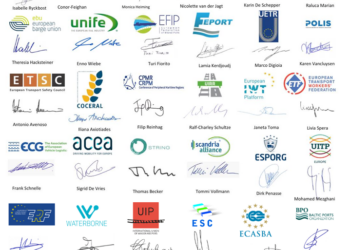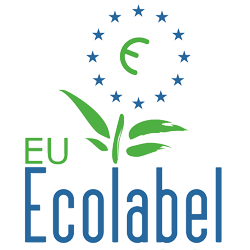Brussels | 04 April 2024
On April 4, 2024, members of the European Road Federation (ERF) and the Conference of European Directors of Roads (CEDR) gathered to discuss the challenges faced by industry and supply chains in meeting the objectives of the European Green Deal. The Green Deal targets climate neutrality by 2050, with an interim goal of reducing emissions by at least 55% by 2030, impacting various sectors including the road infrastructure industry. The roundtable facilitated productive discussions, showing common ground between industry representatives and national road authorities.
Among the speakers, Jean-Michel Michou from EUROBITUME highlighted implications of the revised Construction Products Regulation (CPR) under the Green Deal, particularly focusing on the standardisation of intermediate products like bitumen.
Nicola Donato, a delegate from Avery Dennison and a member of the ERF Working Group on road signs, outlined several strategies for the industry to effectively address the targets set forth by the Green Deal. These strategies include reducing environmental footprints through the extension of product lifecycles, minimising material usage, and adopting low-carbon emission processes. Additionally, Donato highlighted the importance of dematerialisation through digitilisation, advocating for the integration of data-driven decision-making processes across the entire value chain.
Concerns were raised regarding short-term inflationary effects of footprint reduction and the timing of investment returns. In response to these challenges, Donato proposed the establishment of working groups including relevant stakeholders, aimed at fostering knowledge exchange, identifying key measures, and raising awareness of pathways to decarbonisation.
Subsequent presentations by industry experts further enriched the dialogue. Toni Ogemark, representing the Scandinavian Road Markings Association and the ERF Road Markings Working Group, offered insights into the core business model of public road marking. Similarly, Martin Page from Deltabloc, a member of the ERF Working Group on safety barriers, raised pertinent concerns regarding the transparency and consistency of Environmental Product Declarations (EPDs), stressing the importance of standardised preparation processes to ensure comparability.
Jean-Claude Roffé from Routes de France provided an overview of global efforts to decarbonise road infrastructure, drawing attention to trials of electric roads and initiatives aimed at greening road construction and maintenance practices. Despite notable progress, Roffé highlighted persistent obstacles due to a lack of support from road administrations and the absence of environmental criteria in tender invitations.
Furthermore, Rik Nuyttens from the Road Federation Belgium emphasized the impact of decarbonisation efforts on both environmental sustainability and economic prosperity. Nuyttens stressed the need of capacity building for cities and municipalities, particularly in light of the growing emphasis on active urban mobility and the reshaping of urban spaces. He also called for joint approaches to training, including webinars and workshops, to address the prevailing lack of technical competence at the local level. Nuyttens also highlighted the importance of advocating for sustainable investments in maintaining aging infrastructure and preparing roads for future mobility trends. Finally, he highlighted the importance of harmonizing Green Public Procurement standards and promoting careers in the road sector to ensure a sustainable and efficient road network.
Luc Rens (EUPAVE) highlighted the importance of a consistent policy framework for the road infrastructure industry, balancing innovation with realistic expectations for technical and environmental performance. However, European Road Authorities face challenges: a slow standardization process and regulations that may exceed practical limits, like the Taxonomy Delegated Act could potentially be an obstacle for innovation and realistic development.
Lastly, Rob Shearing from the Road Safety Markings Association reiterated the industry’s commitment to innovation; however, investment in innovation requires defined rules and timeline according to him.
In conclusion, this meeting laid the groundwork for enhanced collaboration between industry stakeholders and national road authorities, highlighting the potential for deeper engagement in the future. Christophe Nicodème, director general of ERF, thanked all the participants for their valuable contributions and formally concluded the meeting.
-
New President Appointed at the Helm of the ERF
June 12, 2025




